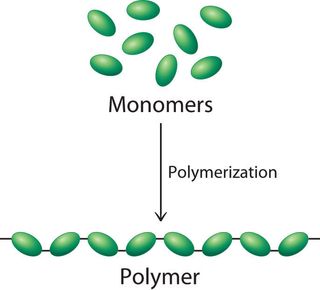Customized Polymers: Customized Solutions for Distinct Applications
Customized Polymers: Customized Solutions for Distinct Applications
Blog Article
Exploring the Varied Applications and Advantages of Polymers in Different Industries
Polymers, with their varied range of residential or commercial properties and capabilities, have actually come to be crucial in numerous sectors, each reaping unique advantages from their application. From boosting safety and efficiency in the auto market to revolutionizing medical gadgets in the medical care sector, polymers play a pivotal function.
Automotive Field Applications
Polymers play a critical duty in enhancing the efficiency and longevity of numerous parts within the auto field. These functional products are extensively utilized in the production of various components, varying from interior elements to under-the-hood applications. One noticeable use polymers in the vehicle market remains in the production of lightweight elements. By changing standard steel get rid of polymer-based choices, lorries can achieve improved gas effectiveness without endangering on strength or safety and security.

Healthcare Industry Advantages
In various medical care applications, the benefits of using polymers are extensively identified for their varied variety of advantageous buildings. Polymers play an important function in the healthcare industry because of their flexibility, biocompatibility, and cost-effectiveness. One of the key benefits of polymers in healthcare is their capacity to be tailored to details requirements, such as adaptability, durability, and biodegradability, making them optimal for a large range of clinical applications.
Polymer-based materials are extensively made use of in medical devices, such as catheters, implants, prosthetics, and drug distribution systems, as a result of their biocompatibility and capability to resemble all-natural cells. These materials can decrease the threat of allergies or rejections, enhancing person safety and security and results. Additionally, polymers are light-weight, making them ideal for wearable clinical devices and making certain patient comfort.
Furthermore, polymers enable the growth of cutting-edge treatment techniques, such as hydrogels for tissue engineering and nanocomposites for targeted medication distribution. Their convenience of processing and sanitation makes them crucial for maintaining high standards of hygiene in health care settings. Overall, the varied benefits of polymers contribute substantially to advancements in clinical modern technology and patient care.
Ecological Advantages of Polymers

Moreover, polymers can add to power cost savings as a result of their lightweight nature. In industries such as transport, lightweight polymer products can help in reducing gas consumption and greenhouse gas emissions. In addition, polymers can enable the growth of energy-efficient items such as insulation materials that boost energy preservation in structures.
Additionally, polymers play a crucial duty in minimizing water pollution. As an example, using polymer-based filtration systems can properly remove contaminants and impurities from wastewater, securing water resources and ecosystems. Overall, the environmental advantages of polymers make them important properties in promoting sustainability and eco-friendly methods news across various sectors.
Polymers in Electronic Devices and Modern Technology
Thinking about the increasing demand for ingenious and lasting services in contemporary sectors, the integration of advanced polymer innovations in the world of electronics and technology has emerged as a crucial technique for driving effectiveness and performance. Polymers have actually revolutionized the electronic devices sector by allowing the production of lighter, much more adaptable, and durable digital tools. From mobile phones to medical devices, polymers play an important duty in boosting item design and capability.
One substantial advantage of polymers in electronics is their protecting residential or commercial properties, which help safeguard fragile digital parts from ecological factors and electrical disturbance. In addition, polymers are necessary in the development of flexible displays, wearable modern technology, and printed electronic devices, offering unlimited opportunities for developing wise and interconnected tools.
Furthermore, the usage of polymers in digital packaging has actually caused advancements in miniaturization and visit site thermal administration, improving the total efficiency and integrity of digital systems. As modern technology remains to advance, the versatility and versatility of polymers will most certainly drive even more innovation in the electronic devices sector, forming the future of modern technology.
Function of Polymers in Construction and Framework
The combination of innovative polymer products in building and construction and infrastructure jobs has actually changed the way structures are created and constructed in contemporary times. Polymers offer many advantages in the construction sector due to their convenience, sturdiness, and cost-effectiveness. One key function of polymers in building is their use in finishings and sealants, providing protection versus ecological factors such as wetness, UV radiation, and deterioration. Furthermore, polymers are made use of in the manufacturing of lightweight and high-strength composite products, improving the structural honesty of structures while lowering general weight.
Additionally, polymers play an important duty in sustainable construction practices by making it possible for the development of energy-efficient structures. Protecting products made from polymers assist manage interior temperature levels, minimizing the demand for heating and cooling down systems more information and ultimately lowering power intake. Moreover, using polymer-based compounds in facilities tasks such as bridges and roads boosts their longevity and decreases maintenance expenses. On the whole, the incorporation of polymers in construction and facilities showcases their substantial influence on modern-day engineering techniques.
Verdict
To conclude, polymers play an essential role in different sectors such as automobile, health care, environmental, electronic devices, and construction. Their flexible homes make them beneficial in creating innovative remedies and products. From boosting gas effectiveness in automobiles to improving medical devices, polymers supply various benefits. In addition, their influence on decreasing waste and advertising sustainability highlights their relevance in contemporary applications. The extensive use of polymers demonstrates their substantial contribution to progressing technology and enhancing quality of life.
Report this page